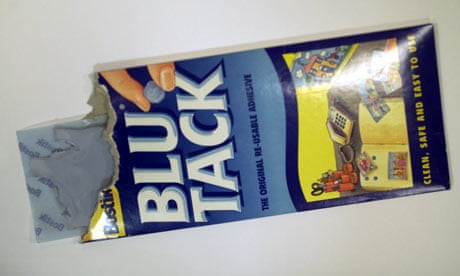Pupils must wear goggles when they handle Blu-Tack, and walk, not run in the playground, under extreme health and safety rules exposed by teachers today.
A poll of 585 teachers found almost half – 44.3% – believe health and safety regulations now restrict pupils' education. Some 46.5% said overzealous rules were inhibiting children's personal growth.
Teachers told the pollsters, who conducted the survey for Teachers TV, that they had been asked to read five pages of guidance on the dangers of glue, and had been advised not to allow classroom windows to be opened more than six inches in case pupils fell out of them.
Teachers gave examples of schools cancelling PE lessons because of wet grass, forcing 15- and 16-year-old pupils who could swim to use arm bands in the sea, and forbidding primary school pupils from wearing plastic hair bands in case they bumped into a classmate.
Children at one school were told to wear goggles before using Blu-Tack to stop them rubbing it into their eyes.
More than 10% of the teachers polled thought accidents at schools had risen in the last five years.
More than 40% said they were frightened of being on their own with a pupil in case they were falsely accused of inappropriate behaviour. More than half said they'd had to look into claims that a child was being abused.
Judith Hackitt, chair of the Health and Safety Executive, described the health and safety examples as "frankly ridiculous". "Health and safety is blamed for a lot of things not going ahead, but they're often about something else," she said, pointing to cost, the fear of legal action and time-consuming preparation.
"Children cannot be wrapped in cotton wool," Hackitt said. "Risk is part of growing up and our children need to learn how to manage risks in the real world."
A spokeswoman from the Department for Children, Schools and Families said: "We urge schools to take a common-sense approach to keeping safe. Health and safety should not be a major burden and it shouldn't stop pupils from learning and playing. A small amount of risk is part and parcel of growing up and we do not subscribe to a cotton-wool culture of a sanitised childhood."

Comments (…)
Sign in or create your Guardian account to join the discussion